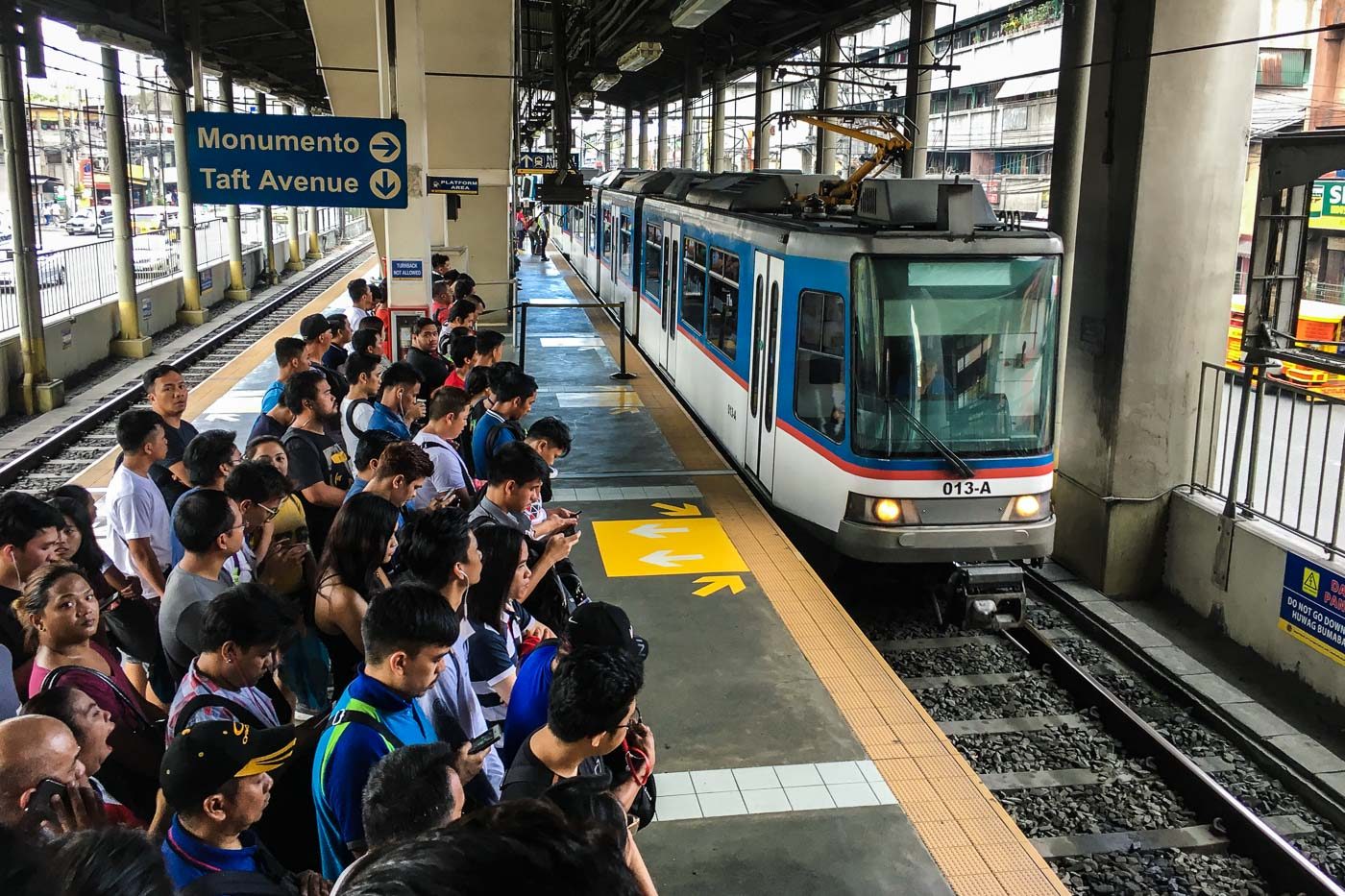SUMMARY
This is AI generated summarization, which may have errors. For context, always refer to the full article.

MANILA, Philippines – The government’s payment to the Japanese contractor in charge of the Metro Rail Transit Line 3 (MRT3) rehabilitation has been “delayed,” but the upgrades remain “on track.”
In a briefing at Malacañang on Wednesday, March 6, Railways Undersecretary Timothy John Batan said the P2.5-billion part of the advance payment to fund the rehabilitation has yet to be released because the 2019 national budget has not yet been signed.
“Nagkaroon ng impression na hindi pa po nag-uumpisa…dahil sa katunayan po ay hindi pa po kami nakakapagbayad sa Sumitomo ng tinatawag nating advance payment. Dahil po batid naman po natin na mayroon pong kaunting hinihintay doon sa ating budget po para sa 2019,” Batan said.
(There’s an impression that the project hasn’t started yet because we haven’t given Sumitomo the advance payment. We need to wait for the 2019 budget.)
But Batan said Japanese contractor Sumitomo-Mitsubishi Heavy Industries (MHI) already placed an order for the needed parts and paid it on their behalf, even without the advance payment from the Philippines.
“Mataas po kasi talaga iyong tiwala ng Sumitomo, ng Mitsubishi Heavy sa atin pong kagawaran, kay Secretary [Arthur] Tugade po at sa kabuuan po ng Build, Build, Build program ng Duterte administration,” he said.
(Sumitomo and Mitsubishi Heavy have trust in our department, in Secretary Tugade, and the Build, Build, Build program of the Duterte administration.)
The advance payment is supposed to be for the purchase of rail tracks and spare parts.
The P22.06-billion MRT3 rehabilitation project is 80% funded by a loan from Japan. The rest will be shouldered by the Philippine government.
Sumitomo-MHI returned as maintenance provider in October 2018. After a month, the DOTr said rehabilitation of the MRT3 had already begun.
Sumitomo is the original builder of the MRT3, and the maintenance provider until 2012.
Rehabilitation would include the replacement of MRT3 tracks, the general overhaul of 72 light rail vehicles, and the repair of the power supply system, overhead catenary system, CCTV system, radio and public address system, signaling system, road-rail vehicles, depot equipment, elevators and escalators, and other station building equipment.
Other projects delayed?
Pending the enactment of the P3.757-trillion national budget for 2019, the government is forced to operate based on fund allocations in the P3.767-trillion budget for 2018.
Funds for new projects cannot be released since these were not part of the 2018 budget.
Departments will have to wait until President Rodrigo Duterte signs the budget bill, which was recently transmitted to his office from Congress.
Batan said on Wednesday that the release of funds for other transportation projects may also be delayed. He mentioned that the Metro Manila Subway and Phase 1 of the North-South Commuter Railway (NSCR) face the same problem.
“Ito po kasing na-reenact na budget for 2018 ay hindi po kasama sa na-reenact iyong [Unprogrammed Appropriations for Foreign Assisted Projects]. So iyong mga gagamit po sana ng UA-FAP under [the General Appropriations Act] 2019 ay wala po ngayong mapagkunan,” Batan said.
(The reenacted budget for 2018 doesn’t have allocations for the unprogrammed appropriations [for this year]. So what should’ve been used for the UA-FAP under the GAA for 2019 has no allocation yet.)
For the Metro Manila Subway, P1 billion was allocated in the 2018 budget. Batan said it can be used “but it’s still not enough” to cover the requirements this year.
For the NSCR, Philippine National Railways General Manager Junn Magno said the agency is also a corporation, meaning it has a “corporate operating budget” where it can source the funds.
But despite the budgetary constraints, Batan gave assurances that the projects will still be done on time: 2023 for the NSCR and 2025 for the Metro Manila Subway. – Rappler.com
Add a comment
How does this make you feel?
There are no comments yet. Add your comment to start the conversation.